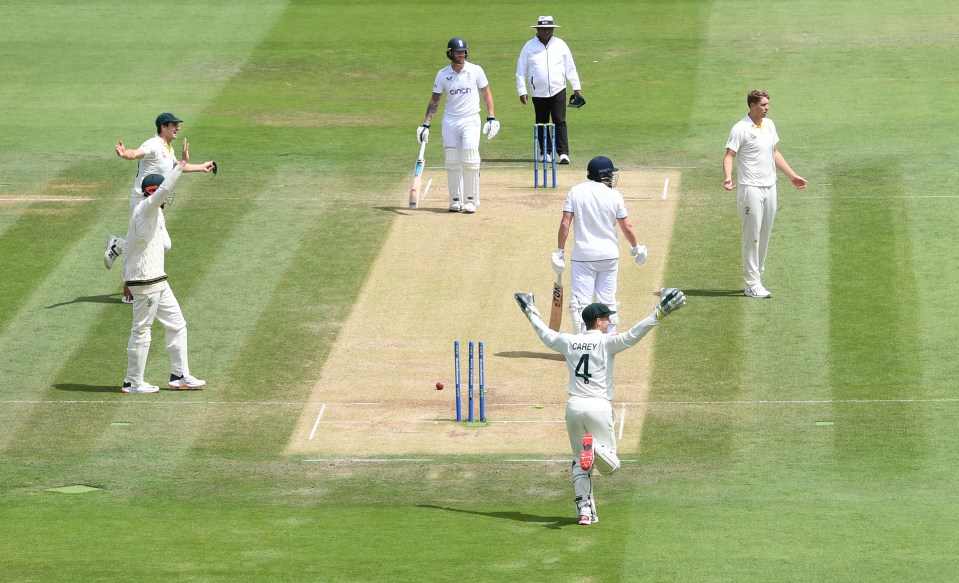Cricket’s racism problem is a lesson for firms ignoring discrimination

Cricket ignored racism for too long, and now it’s suffering the consequences. If it hadn’t chased Black and Asian people away, English cricket would be much stronger today, writes Will Cooling
Back in 2019 I was on the shuttle bus from Edgbaston following England’s disappointingly limp defeat to Australia in the first Ashes Test of that summer. Despite being packed with cricket fans going back to the heart of one of England’s most racially diverse cities, everyone other than my two children were White; and to be honest, my youngest’s attendance was very much under protest.
I remember thinking at the time that this was a worrying sign for the sport’s future. The events of the past few years have shown such concern to be a gross understatement as cricket has been rocked by a series of racism scandals. We have seen Black and Asian people talk about the overt hostility and mockery they experienced at all levels of both English and Scottish cricket, and the lack of support they received when they tried to report such hate incidents.
As is often the case it took one whistleblower to pierce through the conspiracy of silence that had been created by decades of discrimination. Azeem Rafiq had been a promising cricketer who captained England youth sides containing future legends Joe Root and Ben Stokes. But his relationship with Yorkshire County Cricket Club imploded due to the racist harassment that he and other Asian players experienced at what was English cricket’s equivalent of Manchester United. At first his story was ignored or dismissed, but ultimately his testimony was the spark that ignited a debate that British cricket had been ducking for too long about how to make the game truly inclusive of all people.
Many in cricket resent the impact that Rafiq has had, even if they themselves believe that they would never be personally unwelcoming towards Black or Asian people. They see the debate about racism in cricket as one that will do harm to the sport by bringing leading figures or institutions into disrepute or scaring people away from picking up the game.
But such concerns are misplaced and short-sighted. Whatever discomfort English cricket has felt in the wake of players coming forward with their experiences of racism, is discomfort it brought on itself by not being proactive when faced with clear evidence that race was distorting the opportunities available to people within cricket.
That there was a real problem should have been obvious to all. African-Caribbean participation in cricket had massively fallen away from its heights in the 1970s and 1980s just as Black British players started to become a real force in football. Meanwhile the high levels of participation of Asian people in recreational cricket was overwhelmingly concentrated in clubs that the community controlled where they could be free from White people’s hostility or condescension. Likewise, the inability of what few Black and Asian players there were in formal structures to secure county contracts or after retirement secure jobs as coaches, officials or administrators should have underlined that all was not well.
Talking about race and racism is often painful, especially when people suspect that doing so will reveal past misdeeds and enduring privilege. But sometimes we must do things that are unpleasant if we are to grow and prosper. English cricket avoided no difficult conversations by ignoring the very real evidence that Black and Asian people were voting with their feet, boycotting a game that they felt disliked and demeaned them. It merely delayed those difficult questions, thereby allowing the problems caused by racism to fester, ruining more lives and nearly destroying the largest side in the domestic game. One hopes that the implementation of The Independent Commission for Equity in Cricket’s recommendations will go some way to repair the damage.
Because imagine how much stronger English cricket would be today if it hadn’t chased so many people away? Or indeed, imagine how much weaker English cricket will be if it continues to exclude Black and Asian people as Britain rapidly diversifies. This is why it’s important for sports and organisations to not just sit around and passively wait for whistleblowers to prove beyond all doubt the injustices they have experienced. Seeking out evidence of discrimination and promptly addressing it is not only the legally correct and morally right thing to do, it also helps ensure that they recruit the best people for key roles and are open to the most customers. Anti-Racism is, to be blunt, what’s best for business.
